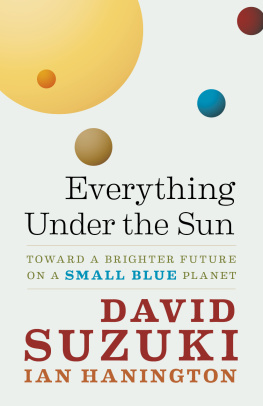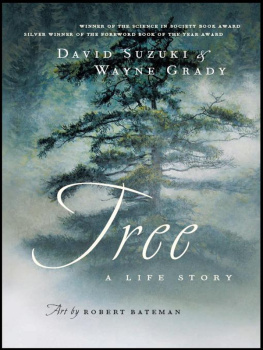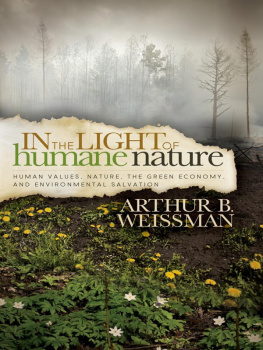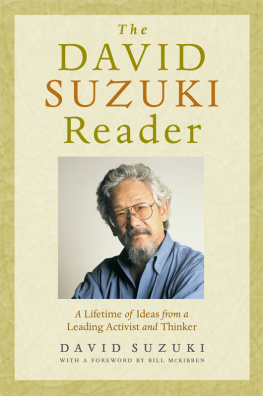the BIG picture
reflections on science, humanity, and a quickly changing planet
the BIG picture
David Suzuki
and Dave Robert Taylor


Copyright 2009 by David Suzuki and Dave Robert Taylor
Material in this book has been adapted from an essay series written by David Suzuki and Dave Robert Taylor for the David Suzuki Foundation and published in various publications between 1999 and 2008.
09 10 11 12 13 5 4 3 2 1
All rights reserved. No part of this book may be reproduced, stored in a retrieval system or transmitted, in any form or by any means, without the prior written consent of the publisher or a licence from The Canadian Copyright Licensing Agency (Access Copyright). For a copyright licence, visit www.accesscopyright.ca or call toll free to 1-800-893-5777.
Greystone Books
A division of D&M Publishers Inc.
2323 Quebec Street, Suite 201
Vancouver BC Canada V5T 4S7
www.greystonebooks.com
David Suzuki Foundation
2192211 West 4th Avenue
Vancouver BC Canada V6K 4S2
Library and Archives Canada Cataloguing in Publication
Suzuki, David, 1936
The big picture: reflections on science, humanity, and a quickly changing planet/
David Suzuki, David Robert Taylor.
A collection of columns published under the title Science matters.
ISBN 978-1-55365-397-4
1. Human ecology. 2. Social ecology. I. Taylor, David Robert, 1971
II. Title. III. Title: Science matters.
GF41.s89 2009 304.2 C2008-906316-3
Editing by Kathy Sinclair Cover design by Jessica Sullivan and Naomi MacDougall Cover photograph by Shannon Mendes Photography Text design by Naomi MacDougall Printed and bound in Canada by Friesens Printed on acid-free paper that is forest friendly (100% post-consumer recycled paper) and has been processed chlorine free. Distributed in the U.S. by Publishers Group West
We gratefully acknowledge the financial support of the Canada Council for the Arts, the British Columbia Arts Council, the Province of British Columbia through the Book Publishing Tax Credit, and the Government of Canada through the Book Publishing Industry Development Program (BPIDP) for our publishing activities.
CONTENTS
Research and the perils of ignorance
Interconnections in the biosphere
Protecting the diversity of life on Earth
Natural services and economics
Global warming and climate change
Car culture and global transportation
Feeding the planet in the twenty-first century
Technology and the culture of consumerism
Social change and the media
Public policy for a sustainable planet
PREFACE
What a fascinating time this is.
AS A SPECIES, WE have come so far so fast that it simply boggles the mind. Not long ago, few people would ever travel more than a hundred miles from their place of birth. Today, even the most exotic location is just a plane flight away. A few centuries ago, we would meet maybe one hundred people over our entire lives. Today we can meet that many on Facebook in an hourand then keep in touch with themvirtually anywhere in the world through smartphones and the internet.
Not all of us have such luxuries, but those of us living in developed countries should consider ourselves very lucky indeed. Stable governments, a reliable climate, and a relatively healthy planet have enabled our societies to take full advantage of all that the natural world provides. Using science and applying it through technology, we have made tremendous advances in medicine, physics, computers and telecommunications, biology, genetics, and much more. Today we are able to lead healthier, longer lives than human beings ever have in our history as a species. With the aid of marvelous technologies, we can now explore the depths of our oceans, manipulate life, and peer deep into the cosmos, pondering some of our most profound questions. Our ancestors would simply marvel at the world weve created. It really is an incredible time to be alive.
But with all this excitement, with all this hoopla and giddy enthusiasm, there is a trade-off. Modern life can be overwhelming. We are awash in unfiltered and often contradictory information on everything from the state of our planet to the state of our economy. Housing prices are downthats bad! But housing is more affordable, so thats good! The stock market has collapsedthats bad! But thats reduced the demand for oil, which means were burning less of it and releasing less greenhouse gas pollution. Thats good! Unless lower oil prices actually discourage energy efficiency and slow the transition to clean energy sources. Thats bad!
It can be confusing, to say the leastif not downright paralyzing. Putting all these pieces together is a daunting task and one not easily achieved. In Vancouver, Canada, theres a television commercial for a local news channel that uses a version of the slogan Helping you make sense of your world. That would be wonderful if it were true. Sadly, its mostly ironic, for nowhere is our world more fractured and chaotic than on the television news. If you wanted to make sense of things, the last place you would likely find enlightenment is in a television newscast. The nature of the medium provides little room for context.
But the media arent our only source of information overload and its just one part of the story. The fact is our modern world is very complicated. Everything now takes place at a global scalepolitics, trade, war, economics, technologyand all seem to be moving faster and faster with every passing year. Yet all of these things that so dominate our headlines and our livesall of these things are merely social constructs created by humans. Ultimately, they still depend on something else: the continued existence of a healthy and stable planet to provide us with the basics of life. Without a healthy planet to cleanse our wastes and provide us with resources, we will wither. Unless we can find a way to live in balance with the natural systems that sustain us, our species will ultimately reach a dead end.
Thats the bottom line.
So what do we do? We live in a fractured world, pummeled by random information, very little of which actually addresses this bottom-line reality. We hear doom and gloom about the environment virtually every day, but then we hear that fixing the problems is too expensive. We read about the need to jump-start the economy, but nobody asks to what end? or questions how its actually possible to achieve unrelenting economic growth on a finite planet. Its enough to make you shout, Enough information already! Where do we go for context?
This book, a selection of essays compiled to help readers put some of the fractured pieces back together, represents a modest start in that direction. Its not comprehensive, by any means. In truth, it will probably raise more questions than it answers. But perhaps thats a good thing, for such questions are not asked often enough in our universities, on the evening news, or by our elected leaders. That in itself says something about the pace of our modern information age and the deep and resounding need for contextthe need to step back from the chaos, take a deep breath, and try our very best to see the big picture.
1
BLINDED BY SCIENCE
Research and the perils of ignorance
Next page










